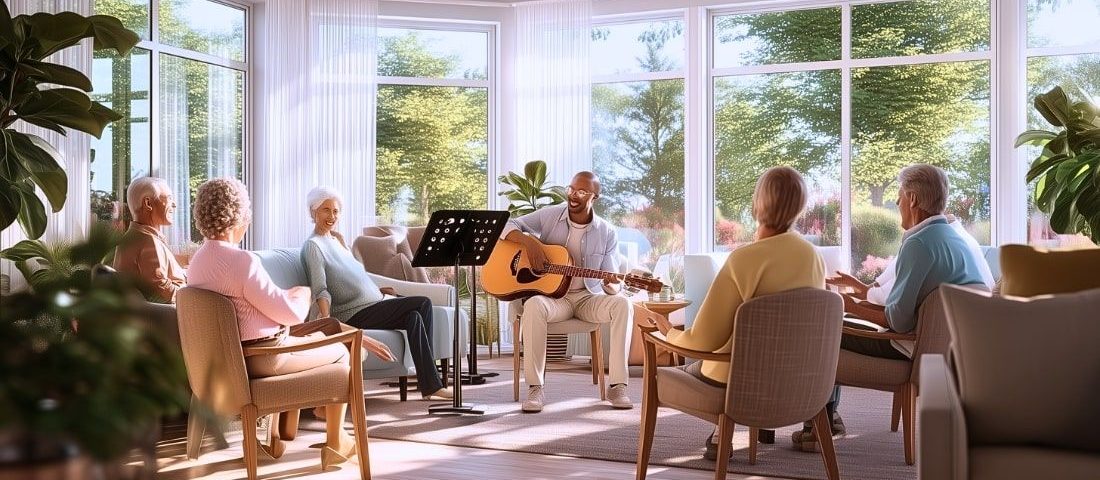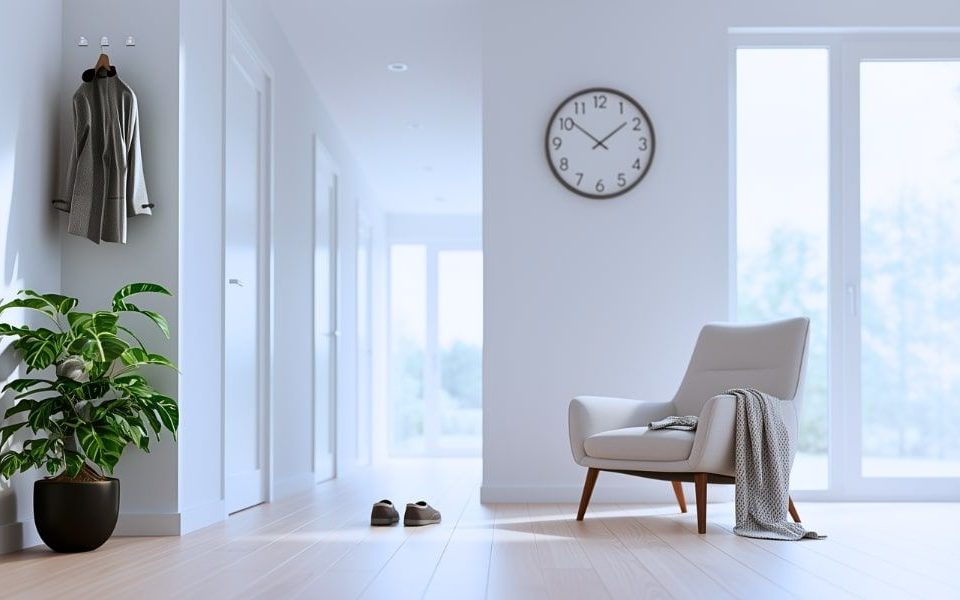
Caring for people with Alzheimer’s or dementia requires patience and understanding. It’s also important to always look for ways to improve their quality of life.
Music therapy can be an effective tool for helping memory care residents live their best lives. It can reduce anxiety, trigger memories, and bring joy to those with memory loss. Let’s explore how music therapy positively impacts their daily lives.
The Impact of Music Therapy on Memory Care
Awakening Memories Through Familiar Tunes
Music therapy is special because it can bring back memories. Even when people find it hard to talk, hearing a familiar song can stir up strong feelings and recognition. Someone with significant memory issues might suddenly start singing along to a song they loved in the past. Music reaches parts of the brain connected to long-term memory, helping people reconnect with moments they might otherwise forget.
Promotes Emotional Well-Being
Many people in memory care feel restless, confused, or agitated due to their condition. Music therapy can help calm them and make them feel more relaxed. Soothing music can lower heart rates and blood pressure, while upbeat tunes can improve mood and reduce feelings of frustration. In group settings, music brings people together and creates a shared experience that helps ease loneliness.
Supports Physical Health
Music encourages movement, even for people with limited mobility. They might clap their hands, tap their feet, or sway to the beat, all of which can provide light exercise. In music therapy sessions, participants can engage in guided movement or dance activities that help maintain their coordination and motor skills. This physical activity supports overall wellness and often leads to smiles.
Enhancing Communication
For memory care residents who struggle to express themselves, music can serve as a non-verbal outlet. Singing, humming, or simply responding emotionally to a melody provides a way to communicate joy, sadness, or contentment. Music therapists have the training to observe these responses and use them to build trust and connection with residents.
Building Routine and Comfort
In many memory care communities, music is an integral part of daily routines. Morning songs signal the start of the day, while lullabies provide comfort before bedtime. This consistency helps residents feel more secure and grounded in their environment. Over time, they begin to associate certain songs with feelings of safety and peace.
Supports Social Interaction
Music therapy helps memory care residents connect with others. Group singing, sharing favorite songs, and enjoying performances can build community and encourage conversations among residents, caregivers, and family members. Music fosters stronger bonds.
At Bethel Gardens, we understand the importance of meaningful care. We offer music therapy to support the emotional well-being of our residents with memory care needs. Our team works hard to provide comfort and high-quality care every day. Contact us to learn how we can help your loved one thrive.



